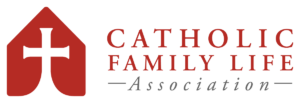Elizabeth Ministry – A Healing Response
Member, Mike Allen, interviews Jeannie Hannemann
Families in trauma benefit from peer ministry, in which parishioners who’ve experienced healing lend support to those enduring similar struggles. This “wounded healer” approach, to borrow a phrase of Henri Nouwen’s, is a hallmark of Elizabeth Ministry International, whose mission is to “offer hope and healing on issues related to childbearing, sexuality, and relationships.”
I recently talked with Jeannie Hannemann, co-founder of Elizabeth Ministry, which has
registered over 700 Elizabeth Ministry Chapters on six continents offering support for the joys, challenges, and sorrows of childbearing.
Why the remarkable growth of Elizabeth Ministry?
Many areas we address, such as infertility or miscarriage, seldom get parish support. Therefore, when people discover Elizabeth Ministry, they will say “I don’t want anyone else to go through what I had to do alone.” They want to start an Elizabeth Ministry Chapter.
Clergy and Family Life ministers support formation of Elizabeth Ministry Chapters because they are aware of the need.
What makes peer ministry so effective to persons and families in this kind of trauma?
Unless you’ve had a miscarriage, for example, you don’t know the pain of someone going through that experience. You can be compassionate and caring, but you don’t really understand.It’s the difference between sympathy and empathy.
What makes peer ministry especially important in today’s parishes?
Greater mobility has added to the isolation of families; they often don’t have family nearby. So the church has to step up and provide compassion and practical help.
Say a woman is put on bed rest—what is she going to do if she has a two year old? Some of our chapters have stepped right in, providing meals, childcare etc. – to fill in for extended family.
One of the challenges in larger parishes is that people can feel isolated, especially facing a
traumatic event. With our clergy stretched so thin, how can peer ministry principles facilitate a deeper sense of community for those who are suffering?
As churches have increased in size, it is difficult to create a loving environment. Informal
support provided in small congregations can happen in a large parish when programs are
established to identify needs and response. Parishes that use our Rosebud Program are able to locate people who could use personal contact. This individual attention provides a close knit feeling even in large communities.
You have a new development within Elizabeth Ministry that you are excited about, a resource for couples and families dealing with pornography and sexual addiction. Tell us more.
Elizabeth Ministry’s primary focus was forming chapters to provide maternal mentoring. But as scientific and technological discoveries transformed experiences of fertility and pregnancy, and our promiscuous society created new medical, social, and spiritual issues, we began receiving requests for trainings and programs on sexuality and relationships.
Our newest program addresses pornography addiction. Elizabeth Ministry partnered with
Candeo, to create RECLAIM Sexual Health, a professional, science-based online Catholic
program to overcome pornography and other unhealthy sexual behaviors. Over 5,000 struggling individuals in more than 75 countries have been helped with the secular version of this behavioral change technology. Now it is available with a Catholic format!
Leading researchers, scientists and psychologists have partnered with Catholic scholars
combining The Brain Science of Change with Theology of the Body to create a different and breakthrough approach to addiction recovery.
We have developed peer-ministry aspects called St. Michael’s Men, St. Monica’s Missionaries and parish programs. For more information, visit www.reclaimsexualhealth.com or contact Elizabeth Ministry International at 920-766-9380 or www.elizabethministry.com


